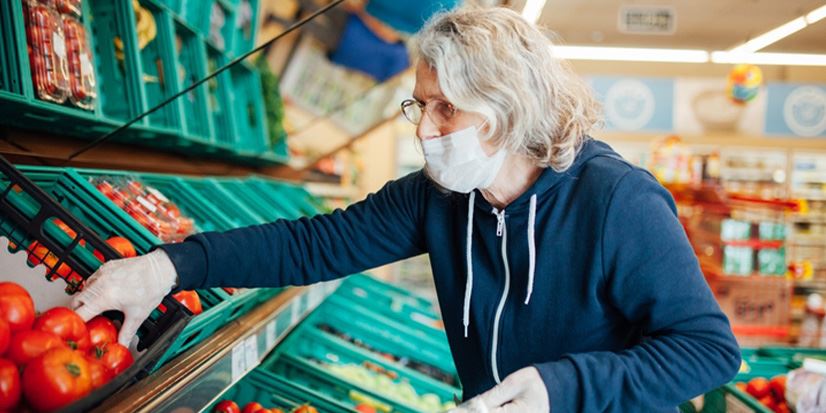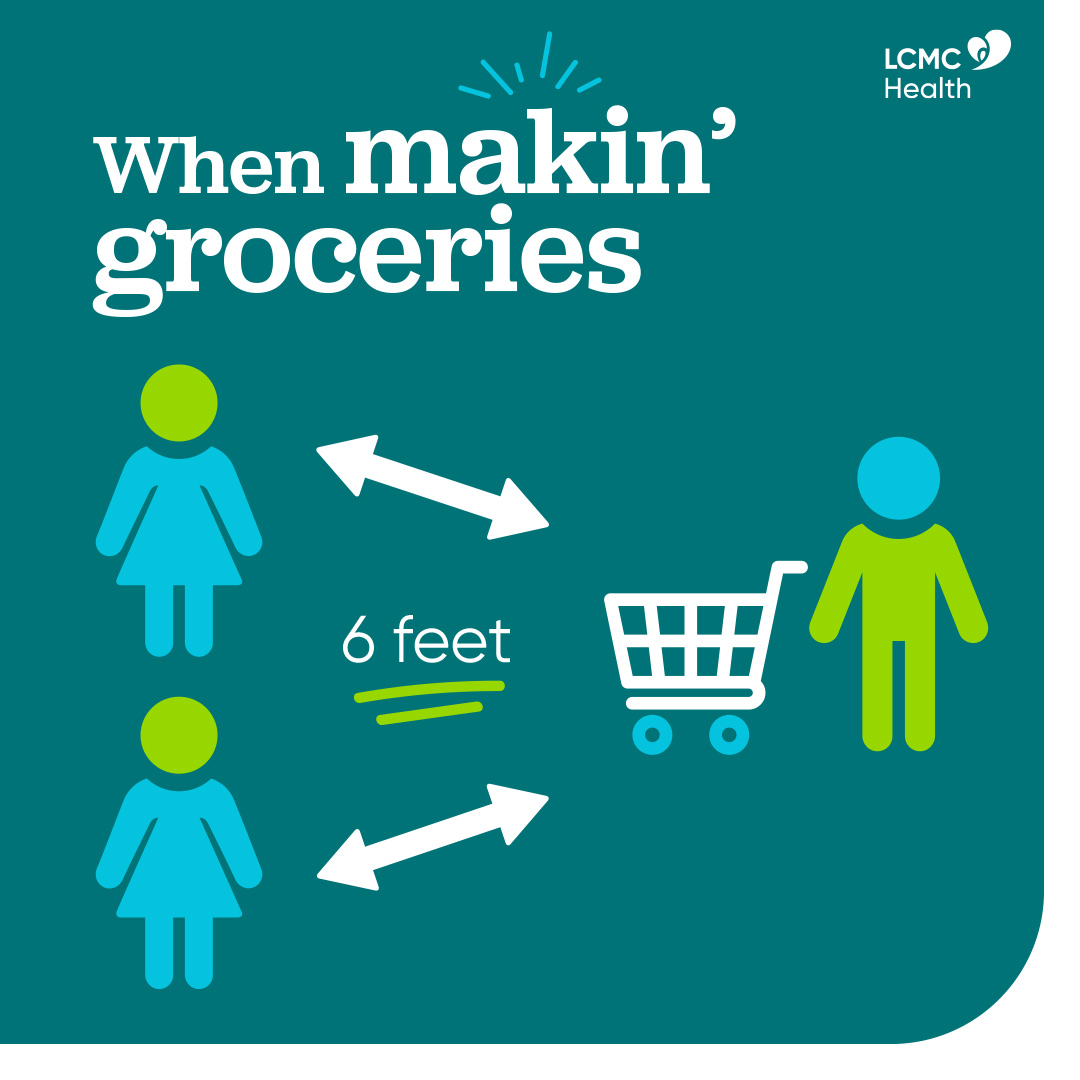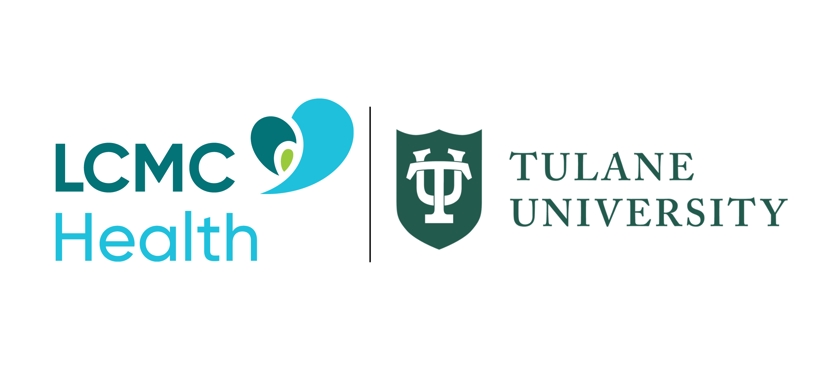5 Ways to Stay Safe while Makin' Groceries during Coronavirus
- Posted on:

As grocery shopping remains a necessity during the coronavirus pandemic, many people have questions about how to shop safely.
According to the Food and Drug Administration (FDA), there is currently no evidence of human or animal food or food packaging being associated with the transmission of the coronavirus that causes COVID-19.
This particular coronavirus causes respiratory illness and is spread from person to person, unlike food-borne gastrointestinal or GI viruses, such as norovirus and hepatitis A that often make people ill through contaminated food.
RELATED: How does coronavirus spread?
To help protect yourself, grocery store workers, and other shoppers, it is important to keep a few things in mind:
- Prepare a shopping list in advance. Buy just 1 to 2 weeks' worth of groceries at a time. Buying more than you need can create unnecessary demand and temporary shortages.
- Wear a face covering or mask while you are in the store. Some stores and localities may require it. Check your state, county, or city guidelines for any other requirements.
RELATED: How to make your own face mask with common household items (no sewing needed)
- Carry your own wipes, or use one provided by the store to wipe down the handles of the shopping cart or basket. If you use reusable shopping bags, ensure they are cleaned or washed before each use.
- Practice social distancing while shopping – keeping at least 6 feet between you, other shoppers, and store employees. Keep your hands away from your face.

- Wash your hands with warm water and soap for at least 20 seconds when you return home and again after you put away your groceries.
Again, there is no evidence of food packaging being associated with the transmission of COVID-19. However, if you wish, you can wipe down product packaging and allow it to air dry, as an extra precaution.
As always, it is important to follow these food safety practices to help prevent food-borne illness:
- Before eating, rinse fresh fruits and vegetables under running tap water, including those with skins and rinds that are not eaten. The scrub firm produces with a clean produce brush. For canned goods, remember to clean lids before opening.
- When unpacking groceries, refrigerate or freeze meat, poultry, eggs, seafood, and other perishables—like berries, lettuce, herbs, and mushrooms—within 2 hours of purchasing.
- Regularly clean and sanitize kitchen counters using a commercially available disinfectant product or a DIY sanitizing solution with 5 tablespoons (1/3rd cup) unscented liquid chlorine bleach to 1 gallon of water or 4 teaspoons of bleach per quart of water. WARNING: Do not use this solution or other disinfecting products on food.
- Always keep in mind the basic 4 food safety steps — Clean, Separate, Cook, and Chill.
RELATED ARTICLES:
Preparing your home for Coronavirus: When what, and how often to clean

